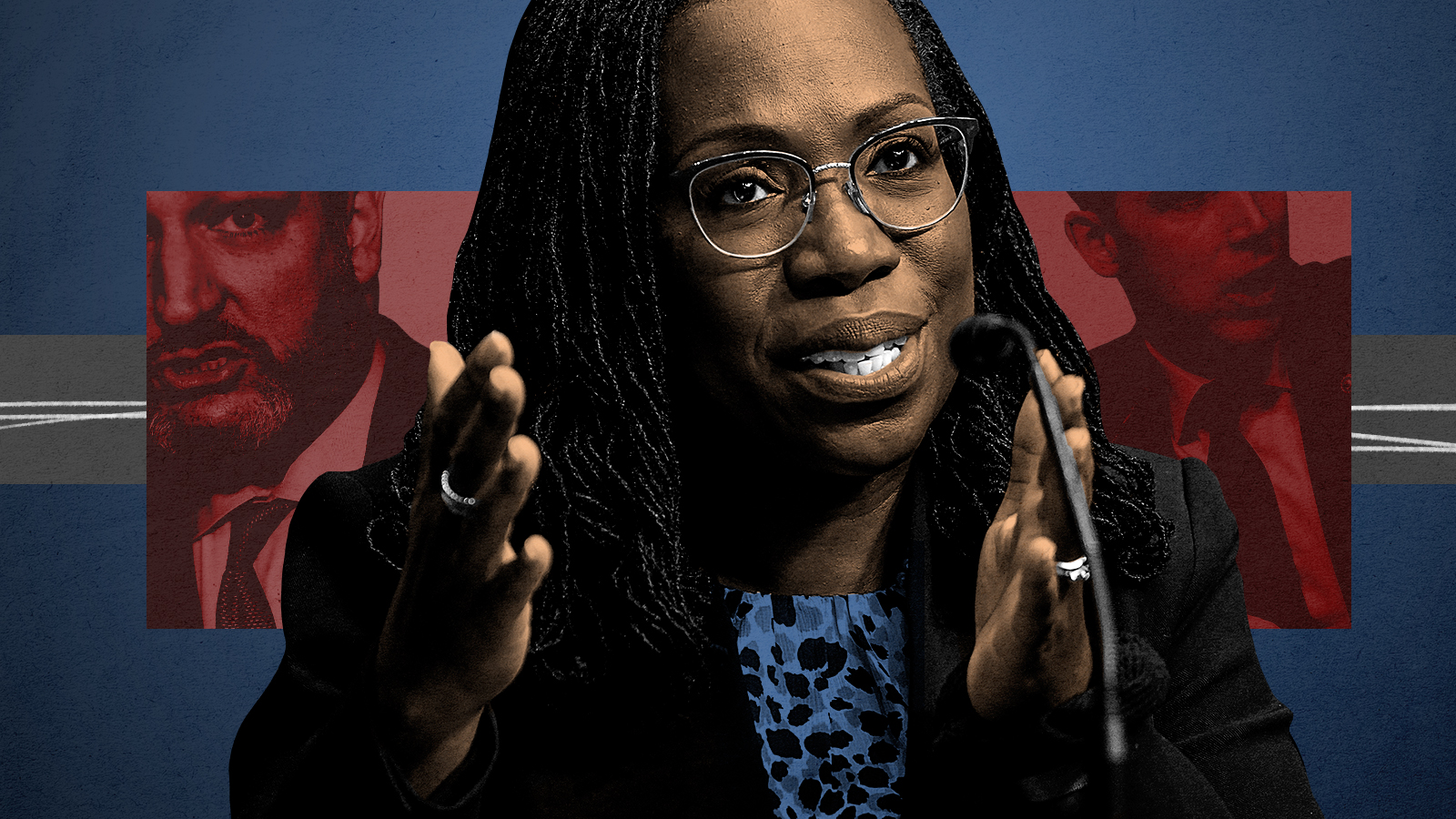There's a reason Ketanji Brown Jackson is the 1st public defender appointed to SCOTUS


A free daily email with the biggest news stories of the day – and the best features from TheWeek.com
You are now subscribed
Your newsletter sign-up was successful
The thing that makes Ketanji Brown Jackson such an excellent nominee to the Supreme Court is also the thing that makes her ripe for attacks from Republicans: She once served as a public defender — the very first one ever appointed to the court.
She was effective. Earlier this month, The Washington Post reviewed her record and concluded that as a defense attorney, "she won uncommon victories against the government that shortened or erased lengthy prison terms." Among her clients: Khi Ali Ghul, a detainee at Guantánamo Bay, Cuba.
That might be very unpopular, but let's be clear: Jackson's experience as a public defender is a good thing. The Constitution guarantees felony criminal defendants the right to legal counsel, and the system doesn't work at all if people accused of crimes can't find a lawyer. Without defense attorneys (and particularly without public defenders), our justice system would be a series of show trials. A criminal charge would be tantamount to a conviction. So it would be good for the court to have a member — just one! — who has day-to-day experience and knowledge of what the law looks like when the government is marshaling its resources against you.
The Week
Escape your echo chamber. Get the facts behind the news, plus analysis from multiple perspectives.

Sign up for The Week's Free Newsletters
From our morning news briefing to a weekly Good News Newsletter, get the best of The Week delivered directly to your inbox.
From our morning news briefing to a weekly Good News Newsletter, get the best of The Week delivered directly to your inbox.
But public defenders have a hard time getting promoted to judgeships. Before Biden became president, roughly 1 percent of federal appellate judges had previously done the kind of work Jackson has done.
Why? Well, Republicans love to beat up on judicial nominees with a history of representing criminal defendants. Just this month, Sens. Ted Cruz (R-Texas) and Josh Hawley (R-Mo.) attacked Nina Morrison, an appellate judge nominee who spent much of her career working for the Innocence Project, a nonprofit organization that uses DNA testing to try to reverse wrongful convictions. "Across this country, Americans are horrified at skyrocketing crime rates, at skyrocketing homicide rates, at skyrocketing burglary rates, at skyrocketing carjacking rates," Cruz sneered at Morrison. "All of those are the direct result of the policies you've spent your entire lifetime advancing."
This sort of thing has been happening for years. It's easy to see why. Crime is always unpopular. Defense attorneys make easy targets for GOP politicians trying to strengthen their "tough on crime" bona fides. Does it matter that they undermine the Constitutional system by incentivizing smart, ambitious lawyers to stay away from a criminal defense practice? Or that innocent people might go to prison without effective representation? Apparently not.
So Jackson's nomination isn't just a good way to expand the Supreme Court's perspectives — it's also a necessary way of pushing back against the notion that it's somehow less legitimate to serve the system as a defense attorney. And no surprise: It probably means there will be fireworks at her confirmation hearing.
A free daily email with the biggest news stories of the day – and the best features from TheWeek.com
Joel Mathis is a writer with 30 years of newspaper and online journalism experience. His work also regularly appears in National Geographic and The Kansas City Star. His awards include best online commentary at the Online News Association and (twice) at the City and Regional Magazine Association.
-
 Key Bangladesh election returns old guard to power
Key Bangladesh election returns old guard to powerSpeed Read The Bangladesh Nationalist Party claimed a decisive victory
-
 Judge blocks Hegseth from punishing Kelly over video
Judge blocks Hegseth from punishing Kelly over videoSpeed Read Defense Secretary Pete Hegseth pushed for the senator to be demoted over a video in which he reminds military officials they should refuse illegal orders
-
 Trump’s EPA kills legal basis for federal climate policy
Trump’s EPA kills legal basis for federal climate policySpeed Read The government’s authority to regulate several planet-warming pollutants has been repealed
-
 Epstein files topple law CEO, roil UK government
Epstein files topple law CEO, roil UK governmentSpeed Read Peter Mandelson, Britain’s former ambassador to the US, is caught up in the scandal
-
 Iran and US prepare to meet after skirmishes
Iran and US prepare to meet after skirmishesSpeed Read The incident comes amid heightened tensions in the Middle East
-
 Israel retrieves final hostage’s body from Gaza
Israel retrieves final hostage’s body from GazaSpeed Read The 24-year-old police officer was killed during the initial Hamas attack
-
 China’s Xi targets top general in growing purge
China’s Xi targets top general in growing purgeSpeed Read Zhang Youxia is being investigated over ‘grave violations’ of the law
-
 Panama and Canada are negotiating over a crucial copper mine
Panama and Canada are negotiating over a crucial copper mineIn the Spotlight Panama is set to make a final decision on the mine this summer
-
 Why Greenland’s natural resources are nearly impossible to mine
Why Greenland’s natural resources are nearly impossible to mineThe Explainer The country’s natural landscape makes the task extremely difficult
-
 Iran cuts internet as protests escalate
Iran cuts internet as protests escalateSpeed Reada Government buildings across the country have been set on fire
-
 US nabs ‘shadow’ tanker claimed by Russia
US nabs ‘shadow’ tanker claimed by RussiaSpeed Read The ship was one of two vessels seized by the US military
